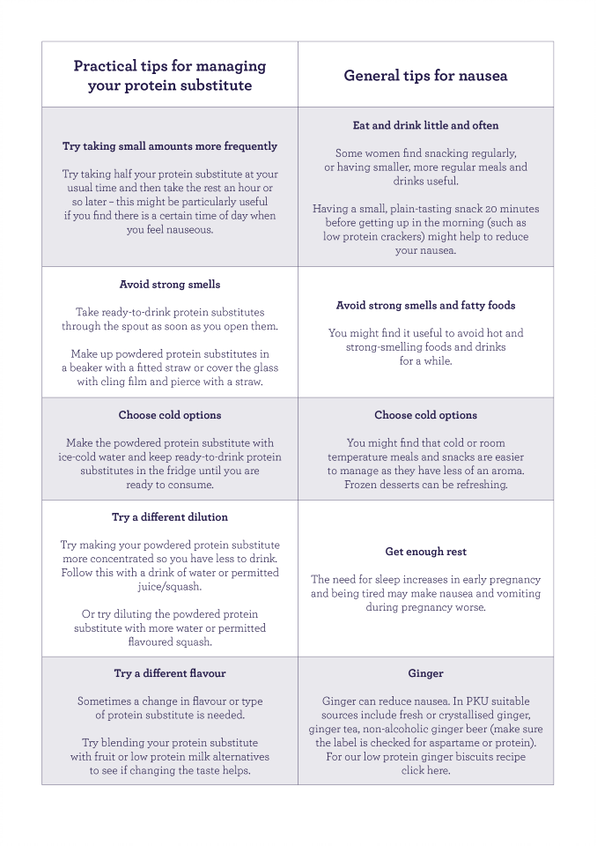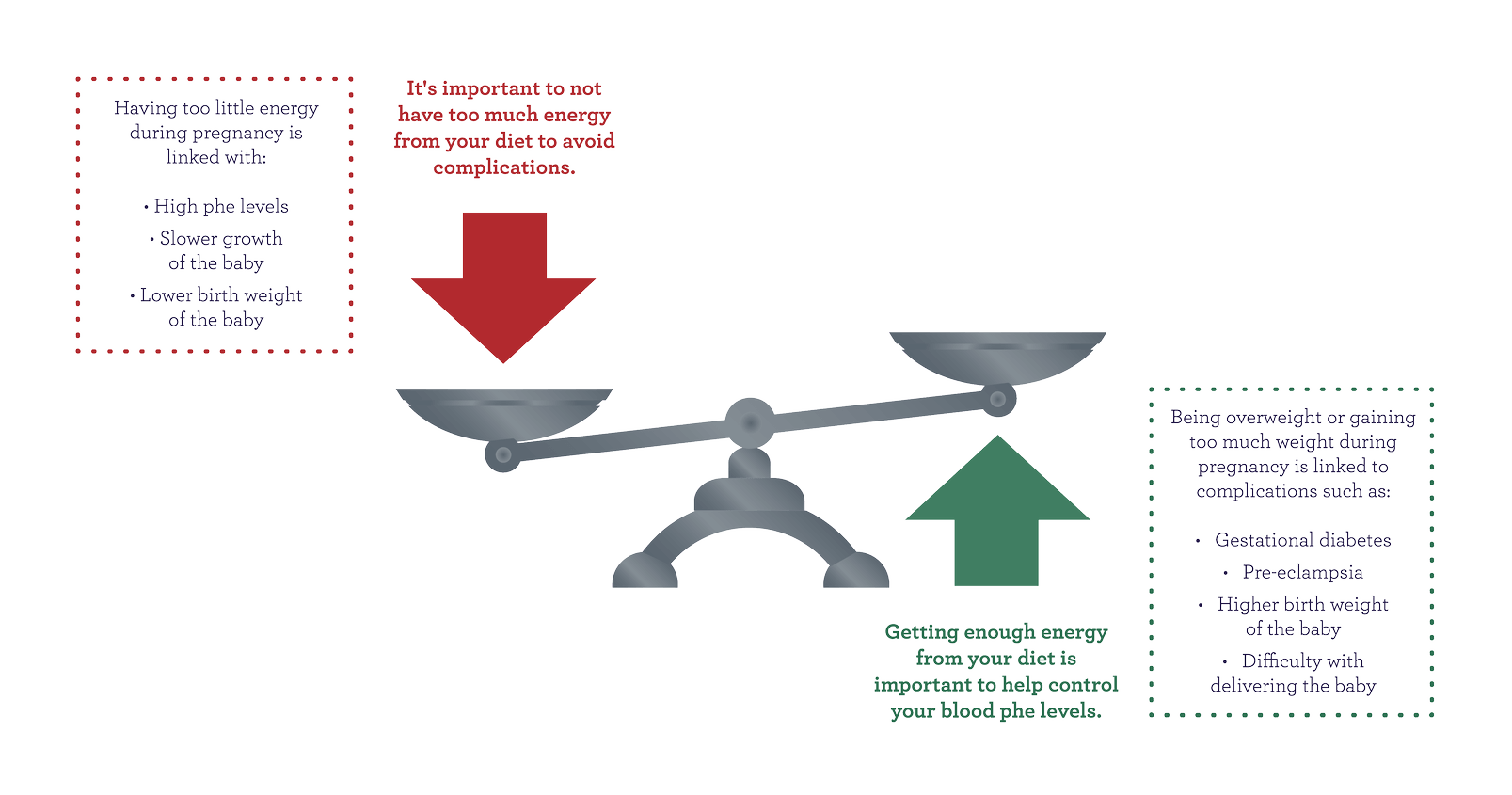PKU and Pregnancy
You are unique and your diet will be tailored for your pregnancy by your metabolic dietitian. Your diet is likely to change several times throughout your pregnancy to keep your phe levels in range.
Maintaining blood phe levels in the target range in the early weeks of pregnancy is important to protect your baby’s heart and brain as they start to form.
After approximately 16 weeks of pregnancy your phe exchanges can increase rapidly as the baby grows. Your dietitian will advise you on how to increase your dietary phe. Having low phe levels (below 100µmol/L) during pregnancy has been linked to slower growth in babies. So, it is important to follow the advice of your dietitian.
Nausea (feeling sick) and vomiting during pregnancy is normal whether you have PKU or not. It is often worse on waking in the morning but can happen at any time of day. Not all women will get morning sickness, but it is very common in early pregnancy and usually clears up by 16-20 weeks of pregnancy.
Managing to balance energy (calorie) intake in pregnancy is tricky, and even more so in PKU.
If you’re feeling sick or have a poor appetite it can be difficult to get enough energy (calories). Some tips to get extra energy in a low protein diet are...
Your dietitian will be able to provide tailored advice for you if you need to limit your energy intake in pregnancy. Some tips to limit extra energy for a low protein diet are...



